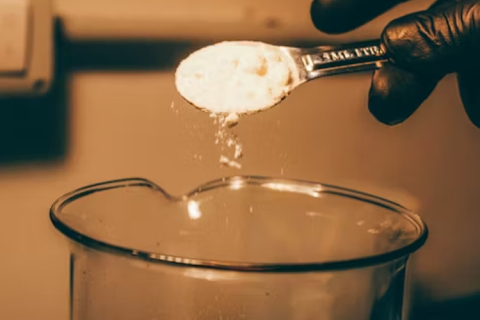
- Home
- >
News
Concrete is an indispensable and important material in construction projects, and its performance directly affects the quality of the project. In recent years, researchers have discovered that adding lithium silicate to concrete mortar can significantly improve the strength, durability and crack resistance of concrete.
Lithium silicate is an emerging positive electrode material for lithium-ion batteries, which has excellent characteristics such as high energy density, high voltage platform, and long cycle life. Compared with traditional lithium cobalt oxide and lithium manganese oxide, lithium silicate has obvious advantages in energy density, safety and cost, and has become the first choice for new energy vehicles and large energy storage systems.
1. Advantages of lithium silicate Lithium silicate is a multifunctional coating additive that offers the following benefits: 1. Enhance adhesion: Lithium silicate can enhance the adhesion between the paint and the substrate, making the paint adhere more firmly to the surface of the substrate.
The main function of lithium silicate in cement is to enhance the crack resistance and wear resistance of cement concrete. Lithium silicate is called "concrete sealant", which can penetrate deeply into concrete and react with lime in concrete to form water-insoluble hydraulic stone, which can increase the density of concrete and reduce the occurrence of surface cracks. . In addition, lithium silicate can also reduce wear on the concrete surface and increase the hardness and strength of the concrete, thereby extending the service life of the concrete structure. Therefore, the addition of lithium silicate is an effective way to improve the performance of concrete.
Lithium silicate, also known as lithium water glass, is a compound formed by combining metallic lithium with a silicate structure. The molecular formula is: Li2SiO3. Lithium silicate is an odorless, tasteless, transparent liquid with a pH value of around 11, which is alkaline. Soluble in water and alkaline solutions, but insoluble in alcohol and organic solvents.
Lithium silicate, also known as lithium water glass, is a compound formed by the combination of metallic lithium and silicate structure, with the molecular formula Li2SiO3. Lithium silicate is a odorless, odorless, transparent liquid with a pH value of around 11 and is alkaline. Soluble in water and alkaline solutions, but insoluble in alcohols and organic solvents. Like sodium silicate and potassium silicate, lithium silicate dissociates from gel by the action of acid. It has self drying properties, and after the evaporation of water in the solution, it can generate a dry film that is insoluble in water. It has water irreversibility, so the waterproof effect is particularly obvious.






